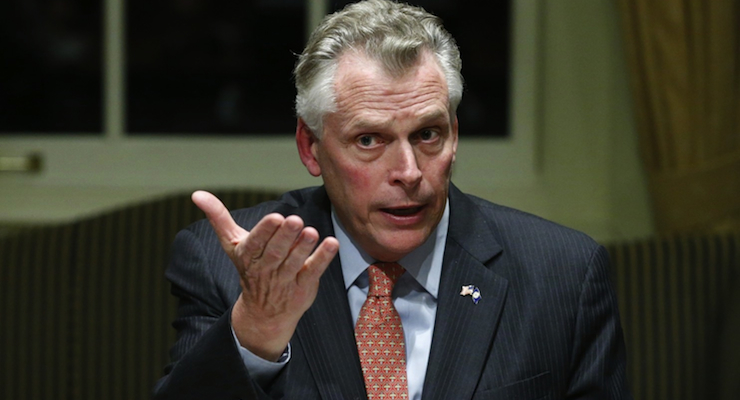

Terry McAuliffe gestures as he talks with members of the House and Senate adjournment committee at the Capitol in Richmond. (Steve Helber/AP)
The Supreme Court of Virginia struck down Gov. Terry McAuliffe’s executive order allowing more than 200,000 felons to vote in November. While the order targeted those who had completed their sentences, the move was designed to hand his political ally Hillary Clinton a victory in the Old Dominion against Donald Trump.
Now, the decision dealt a major blow to the Democratic governor and their plans for the November presidential race in the crucial swing state. In a 4-3 ruling issued Friday, the state’s high court ruled that Gov. McAuliffe overstepped his executive clemency powers under the state constitution by issuing a sweeping order, not on a case-by-case basis, back in April.
The court agreed with state Republicans who challenged Gov. McAuliffe’s order, arguing voting rights should be restored on a case-by-case basis.
“Never before have any of the prior 71 Virginia Governors issued a clemency order of any kind — including pardons, reprieves, commutations, and restoration orders — to a class of unnamed felons without regard for the nature of the crimes or any other individual circumstances relevant to the request,” Chief Justice Donald W. Lemons wrote for the majority. “To be sure, no Governor of this Commonwealth, until now, has even suggested that such a power exists.”
The court ordered the state to cancel the registration of all felons under the order. More than 11,000 felons have registered to vote under the action. To be clear, the court did not strike down felon voting, but simply ruled it should be case-by-case and far beyond the governor’s sole power.
The most damning journalistic sin committed by the media during the era of Russia collusion…
The first ecological study finds mask mandates were not effective at slowing the spread of…
On "What Are the Odds?" Monday, Robert Barnes and Rich Baris note how big tech…
On "What Are the Odds?" Monday, Robert Barnes and Rich Baris discuss why America First…
Personal income fell $1,516.6 billion (7.1%) in February, roughly the consensus forecast, while consumer spending…
Research finds those previously infected by or vaccinated against SARS-CoV-2 are not at risk of…
This website uses cookies.